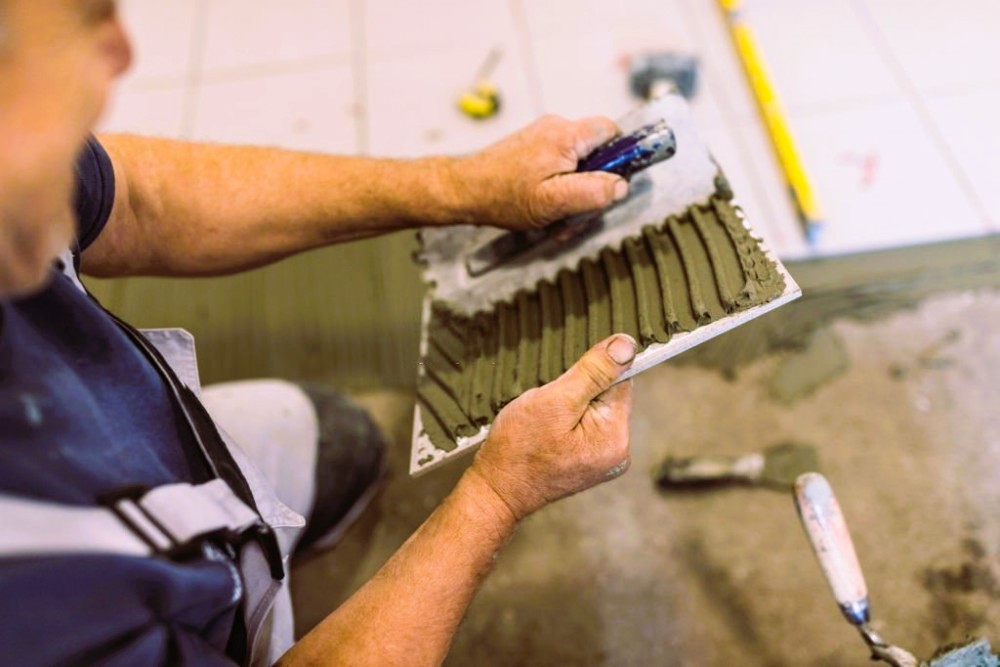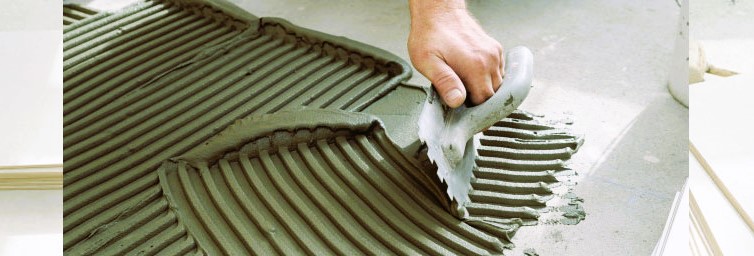
Tile adhesives play a crucial role in the successful installation of tiles. They provide the bond that holds the tiles in place, ensuring durability, stability, and longevity. However, with numerous types and brands of tile adhesives available, choosing the right product can be a daunting task. In this article, we will delve into the science behind tile adhesives and provide valuable insights to help you make informed decisions when selecting the appropriate adhesive for your tiling projects.
Understanding Tile Adhesive Basics:
Tile adhesives, also known as thinset or mortar, are specially formulated materials designed to create a strong bond between tiles and the substrate. They are composed of a mixture of cement, sand, polymers, and other additives that enhance the adhesive properties. The science behind tile adhesives involves understanding their key components and their functions:
- Cement: The primary ingredient in tile adhesives is Portland cement. Cement provides the adhesive with its binding properties and contributes to its strength and durability.
- Sand: Sand is added to the adhesive mixture to improve its workability and prevent shrinkage. The size and type of sand used can affect the adhesive’s texture and overall performance.
- Polymers: Polymers are essential additives in tile adhesives. They improve the adhesive’s flexibility, adhesion, and water resistance. Polymer-modified adhesives offer enhanced properties compared to traditional cement-based adhesives.
- Additives: Various additives are incorporated into tile adhesives to enhance specific characteristics. These may include accelerators to speed up the curing process, retarders to slow down drying time, or anti-slip agents to improve traction.
Choosing the Right Tile Adhesive:
Selecting the right tile adhesive requires careful consideration of factors such as tile type, substrate, environmental conditions, and project requirements. Here are some essential factors to keep in mind:

- Tile Type: Different tiles, such as ceramic, porcelain, natural stone, or glass, have varying requirements in terms of adhesive compatibility. Ensure that the adhesive you choose is suitable for the specific tile material to achieve a strong and lasting bond.
- Substrate: The type and condition of the substrate onto which the tiles will be installed play a significant role in adhesive selection. Common substrates include concrete, cement backer board, plywood, or existing tiles. Verify that the adhesive is compatible with the substrate to ensure proper adhesion. Creating Stunning Patios and Walkways: Outdoor Tile Projects.
- Environmental Conditions: Consider the environmental conditions to which the tiles will be exposed. Factors such as temperature fluctuations, moisture levels, and exposure to chemicals or UV radiation can impact the adhesive’s performance. Choose an adhesive that is designed to withstand the specific environmental conditions of your project.
- Project Requirements: Assess the specific requirements of your tiling project. Factors such as tile size, application method (floor, wall, or outdoor), and desired setting time should be taken into account. Some adhesives are formulated for specific applications, such as large-format tiles or high-traffic areas.
- Manufacturer Recommendations: Always consult the manufacturer’s guidelines and product data sheets for detailed information on the adhesive’s capabilities, limitations, and proper application techniques. Manufacturers often provide specific recommendations for tile types, substrates, and project conditions.
For more in-depth information on tile adhesives, you can visit reliable sources such as Canada.ca.
In conclusion, understanding the science behind tile adhesives is essential for choosing the right product for your tiling projects. By considering factors such as tile type, substrate, environmental conditions, and project requirements, you can make informed decisions and ensure a successful tile installation. Take the time to research and consult with professionals to find the adhesive that best suits your specific needs, ensuring a durable and long-lasting tile installation.
